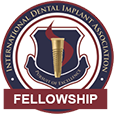Regular Cleanings Lead to Healthier Mouths and Bodies
November 27th, 2018

The American Dental Association and dentists everywhere, including our own Dr. DeCasperis recommend that you schedule an appointment every six months for a cleaning and checkup. Despite this universal recommendation from the experts, some people believe regular cleanings and checkups are unnecessary unless there is something wrong with your teeth—for example, a cavity or a toothache. In fact, coming in for a six-month checkup and cleaning is one of the most important things you can do for your oral health, as well as your overall health.
Why It’s Important to Visit Regularly
Numerous studies have shown that oral health is closely tied to the overall health of your whole body. In fact, having a healthy mouth can help the rest of your body stay in balance. On the other hand, an unhealthy mouth can cause all kinds of problems for you down the road.
One of the most important things we do at Dr. Steven DeCasperis, DMD when you come in for cleanings is remove plaque that has collected on your teeth and around your gums. If left untreated, plaque build-up can cause inflammation and irritation around your gums, and lead to gum diseases like gingivitis and periodontal disease.
According to the American Academy of Periodontology, periodontal disease has been linked to increased risk for serious health conditions such as heart disease, stroke, diabetes, inflammation, osteoporosis, and pregnancy complications.
Most oral health issues will begin with subtle changes before progressing into more serious conditions. If you visit us for regular checkups, we may be able to identify common indicators that could lead to larger issues down the road. If we only see you at our office every few years, it becomes more difficult to catch these conditions before they grow into bigger and more painful problems.
What happens at a dental checkup?
When you come in for your regular checkup, there are several things our dentists and hygienists may do, including:
- Take X-rays to determine the overall health of your teeth, jaw, bones, and the tissue surrounding your teeth, including a check for early signs of tooth decay, abnormal growths, cavities, and other damage that is not immediately visible
- Perform a thorough cleaning of your mouth and teeth to remove any excess plaque and tartar, then polish and floss your teeth
- Check for signs of gum disease or evidence of tooth decay
- Examine your bite, and look for broken or damaged teeth
- Identify any changes to your gums or teeth since your last visit
- Examine your head and neck for signs of oral health problems
Waiting to visit Dr. DeCasperis until you already have a problem, like a cavity, is like waiting to put gasoline in your car until after you run out and your vehicle is stalled on the side of the road. Once you have a problem, the ripple effect can cause you a lot of pain, take considerably more time, and cost a lot more money to fix than if you had come in for preventive care and cleanings every six months.
References: American Academy of Periodontology (2012). Gum Disease Links to Heart Disease and Stroke. Retrieved from http://www.perio.org/consumer/mbc.heart.htm









